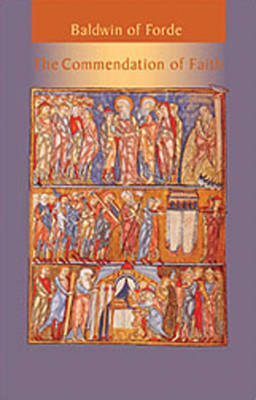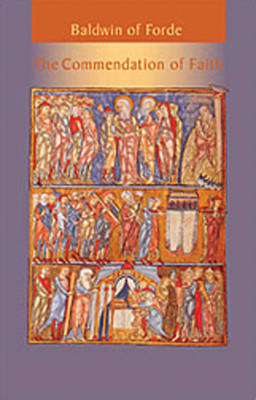
- Retrait gratuit dans votre magasin Club
- 7.000.000 titres dans notre catalogue
- Payer en toute sécurité
- Toujours un magasin près de chez vous
- Retrait gratuit dans votre magasin Club
- 7.000.000 titres dans notre catalogue
- Payer en toute sécurité
- Toujours un magasin près de chez vous
Description
Archdeacon of Exeter before entering Forde Abbey in 1169, Baldwin was elected abbot in 1175. Six years later he was made bishop of Worcester, and in 1184 became Archbishop of Canterbury. The Commendation of Faith seems to date from his years as abbot.
Baldwin stood on the threshold of scholasticism and did not much like what he saw. Many twelfth-century theologians were becoming impatient with the allegorical scriptural commentaries which had long nourished monastic theologians. Instead they turned to the short snappy scholastic questio, in which arguments for and against a proposition led logically to a neat, summary resolution.
Using the techniques of nascent scholasticism, Baldwin recommends faith as the foundation of our relationship with God and with our neighbor. His approach has all the precision of scholasticism, but not its style. Expecting those endowed with reason to use it, he urges them to explore God's self revelation in Scripture. Each brief chapter in The Commendation of Faith leads inexorably to the next, and by its solid, logical progression Baldwin demonstrates that the careful and judicious use of reason does not destroy faith but instead strengthens and confirms it.Spécifications
Parties prenantes
- Auteur(s) :
- Editeur:
Contenu
- Nombre de pages :
- 314
- Langue:
- Anglais
- Collection :
- Tome:
- n° 65
Caractéristiques
- EAN:
- 9780879077594
- Date de parution :
- 01-11-00
- Format:
- Livre broché
- Format numérique:
- Trade paperback (VS)
- Dimensions :
- 137 mm x 211 mm
- Poids :
- 385 g







